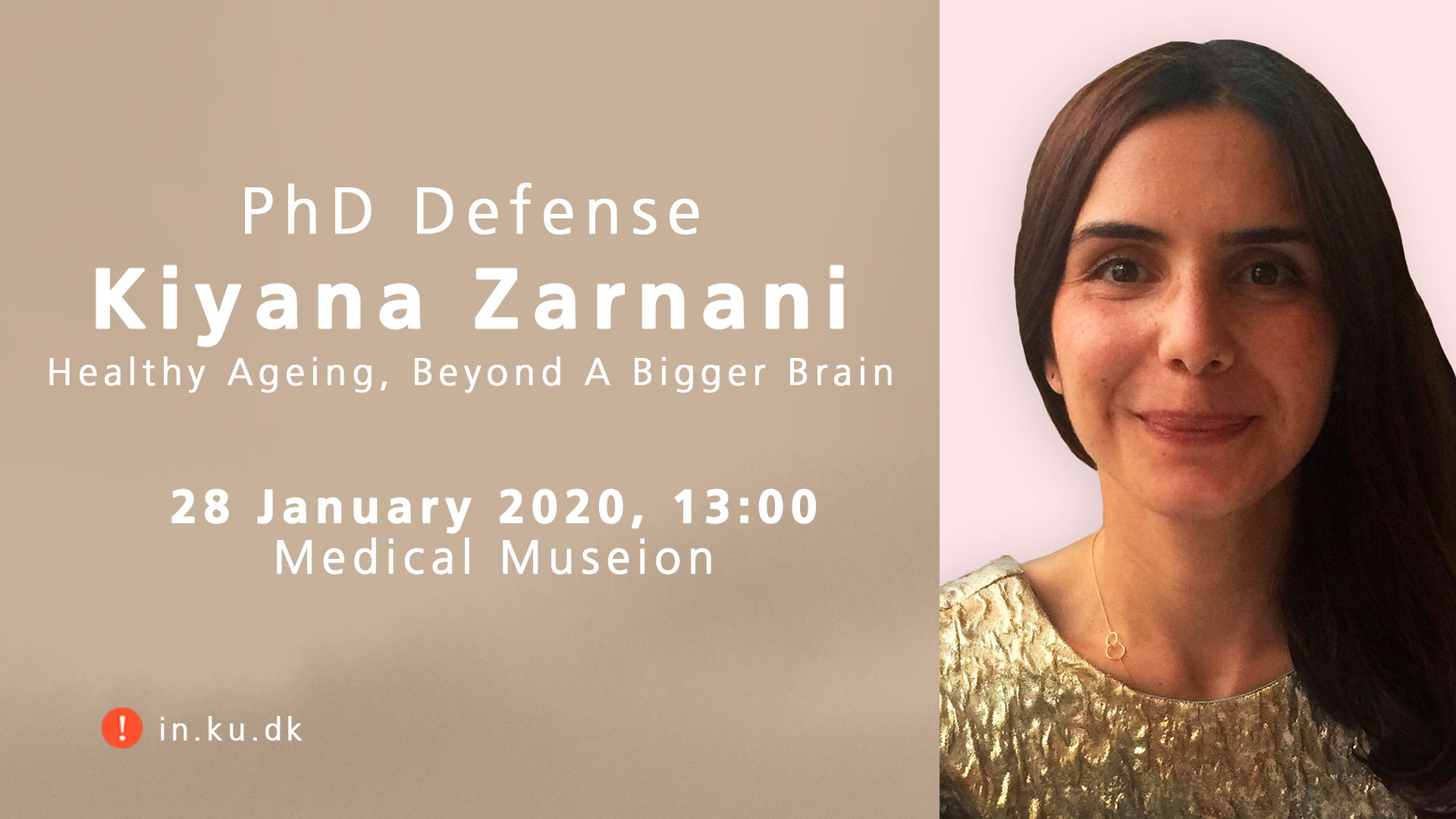PhD defense by Kiyana Zarnani

Invitation to PhD Defence
Kiyana Zarnani will defend her PhD thesis:
Healthy Ageing, Beyond A Bigger Brain
28th of January 2020, 13:00-16:00
Medical Museion
Bregade 62, 1260 København
Assessment Committee
Professor Steen Hasselbalch (chairperson)
Professor Anders Wallin
Associate Professor Mark Bastin
Abstract
There is a pressing need to identify markers of cognitive and neural decline in healthy late-midlife participants. We explored the relationship between cross-sectional and longitudinal structural brain-imaging derived phenotypes (IDPs) and cognitive ability, demographic, health and lifestyle factors (non-IDPs). Participants were recruited from the 1953 Danish Male Birth Cohort (N=193). Applying an extreme group design, members were selected in 2 groups based on cognitive change between IQ at age ~20y (IQ-20) and age ~57y (IQ-57). Subjects showing the highest (n=95) and lowest (n=98) change were selected (at age ~57) for assessments on multiple IDPs and non-IDPs. We investigated the relationship between 453 IDPs and 70 non-IDPs through pairwise correlation and multivariate canonical correlation analysis (CCA) models. Significant pairwise associations included positive associations between IQ-20 and gray-matter volume of the temporal pole. CCA identified a richer pattern – two independent “positive-negative” modes of population co-variation coupling individual cross-subject and longitudinal variations in IDPs to an extensive range of non-IDP measures (r = 0.75, Pcorrected < 0.01; r = 0.92, Pcorrected < 0.001). Specifically, these modes linked higher cognitive performance, positive early-life social factors, and mental health to a larger brain volume of several brain structures, overall volume, and microstructural properties of some white matter tracts. This PhD provides a reliable procedure for identifying correlates of healthy ageing trajectories. Using the MDBC-1953 multifaceted dataset we report a link between (cross-sectional and longitudinal) broad-brush and specific brain and behavioural measures and how they may be influenced by multiple potential age-related modifiers. Future studies that continue to value the importance of social, biological and environmental differences in health outcome will undoubtedly aid the discovering of early intervention targets and clinical diagnoses which may in turn improve the quality of years in our increasingly ageing population.
